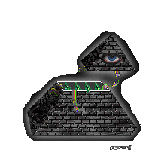September 5, 1990
Timothy J. Rogan
Cosgrove & Meurer Productions
4303 West Verdugo Avenue.
Burbank, California 91505
Dear Mr. Rogan,
I am writing to you regarding an upcoming segment of "Unsolved Mysteries" which you have already produced. Apparently titled "Dark Dante", it is said to include a dramatization of allegations that the San Jose U.S. Attorney's office has made against me. It is this dramatization that concerns me and which prompts this letter.
Criminal cases involving suspected unauthorized computer access, or "hacking", are frequently subject to wild, unsubstantiated, and often bizzare claims by prosecuters and investigators. In the last five years hacking suspects have been accused of, among other things, breaking into classified NSA computers1, causing the January 1990 crash of AT&T's switching network 2, shifting the position of orbiting satellites3, and "threatening the safety of residents throughout the Southeast" by publishing proprietary details of Bell South's emergency 911 system 4. Most of these fanciful accusations have not been backed up by formal charges and none of them has ever resulted in a conviction. In the latter case, in which a Missouri man was accused of conspiring to steal an eighty-thousand dollar secret document on the workings of the 911 system, federal prosecutors were recently forced to drop all charges when the defense proved that not only was the document quote harmless, but it was actually available to the general public from Bell South for a ten dollar fee5.
These outrageous claims allow prosecutors to win absurdly high bail requirements for suspects or even no bail at all. Further, they will often generate press coverage for what may otherwise be a decidedly unnewsworthy case.
Fortunately for the suspects in most cases of this type, once cleared of these charges they stand a good chance of being able to continue with their lives as before. Newspaper articles and coverage on the evening news do not lend overly biased support to the prosecutor's claims. The public is simply informed of the accusations and is left to evaluate them. If formal charges are never filed or the suspect is eventually acquitted, the public can see the charges in their proper light and draw their own conclusions.
Dramatizations are different story. What I've read about the segment you've produced is that you intend on showing a Kevin Poulsen look-alike actually doing what the prosecutor has accused me of. You will be creating a crime for your audience and you will be showing "me" committing it. Even after I am eventually cleared of these ludicrous accusations involving national security, Ferdinand Marcos, etc., the images of "Kevin Poulsen" huddled over a computer stealing military secrets while cackling evilly will remain in the minds of your fourteen-million viewers. Adding an occasional "allegedly" to your report, or even reporting on my acquittal when it occurs, will hardly mitigate this. My life and my career will be irrevocably damaged.
From a legal standpoint, if you portray me committing crimes that I am innocent of you will be guilty of slander under Sections 46(1) and 46(3) of the California Civil Code as well as "false light invasion of privacy" i.e. placing me before the public in a false and offensive light. This is under Section 1, Article 1, of the California State Constitution. There is considerable precedent for civil action in cases of dramatizations. An interesting example is a case in which a confessed assassin sued CBS Television for invasion of privacy, after it televised a dramatization of the killing and events leading up to it. The court allowed his argument that CBS had misrepresented his motives in the killing and fictionalized conversations between himself and others. The court also ruled that, despite significant publicity about the killing, the plaintiff was not a public figure and thus did not have to prove malice on the part of CBS6.
Don't count on my convictions on these charges either. The more sensationalistic charges will be early casualties when I come to trial, if not sooner. Indeed, unlikelyhoods and inconsistencies in the government's claims are already beginning to emerge. A New York Times article quoted several computer security experts as expressing skepticism over the claim that I broke into a classified computer system 7, and the Pacific Bell security agent who investigated this case recently told a reporter that as a "hacker" I was "not very good." 8 Compare this with the prosecutor's portrait of me as one who could "do whatever he wanted to do with the telephone system as well as with government computers."9
Of course, I have not actually seen your report. I am relying completely on what I've read and I may very well have drawn the wrong conclusions. Perhaps your piece is an objective, or even skeptical, look at the government's case, rather than a mindless parroting of its allegations. Maybe your dramatization does not act out the indictment, but rather exposes the absurdity of its claims. If this is the case then I can only apologize for what would be a presumptuous letter. However, this seems unlikely.
Finally, I have not used the pen-name "Dark Dante" since I was sixteen. I humbly offer "Dark Deception" or "Defamatory Dramatization" as more generally descriptive titles.
Sincerely,
Kevin L. Poulsen
1.Los Angeles Times, January 8, 1989. "Dark Side Hacker Seen As Electronic Terrorist"
2.John Perry Barlow, June 8, 1990. "Crime and Puzzlement"
3.Time Magazine, July 29, 1985. "The Great Satellite Caper"
4.United Press International, July 25, 1990. "Trial of Accused Hacker Begins"
5.Computerworld, August 6, 1990. "Dial 1-800 ... For Bell South's 'Secrets'"
6.Youssoupoff v. Columbia Broadcasting System, Inc. (1965) 48 Misc 2d 700, 265 NYS2d 754.
7.New York Times, January 19, 1990. "Wariness Over Computer Indictment"
8.Peninsula Times Tribune, July 14, 1990. "Hacker 'Probably On Computers in Southern California'"
9.New York Times, January 18, 1990. "3 Men Accused of Violating Computer and Phone Systems"
